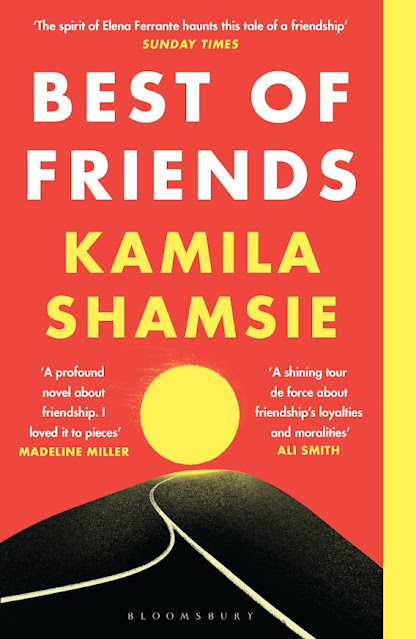Book Review - Best of Friends
Kamila Shamsie’s blazing 2017 novel, Home Fire, winner of the Woman’s Prize and longlisted for the Booker, is a contemporary retelling of Sophocles’ play Antigone; a searing account of radicalisation and Islamophobia from the perspective of a Muslim family navigating life in Britain.
Best of Friends is a more introspective work, looking at the decades-long friendship of two women who move from Karachi to London. In terms of tension, it’s a slow burn. The book is divided into two parts. The first depicts their adolescence at a prestigious school in Karachi in the 1980s where their attachment is first cemented and tested. Friendship is what they share, Zahra declares, whereas “what they had with the other six girls and twenty-two boys in class was merely ‘propinquity’ – a relationship based on physical proximity.” Their school years are set against the backdrop of President’s Zia’s dictatorship and abrupt death and the rise of Benazir Bhutto who becomes the country’s first female prime minister in 1988.
While Maryam is nonchalant about her studies, Zahra is bookish and works hard. Maryam’s family own a leather goods factory. They are well-off and she has the self-assurance of the entitled, safe in the knowledge that she will inherit the business from her grandfather one day (she doesn’t). Maryam learns early on what it feels like to have power over another and to be able to bend people to her will. Zahra’s family are not as affluent or well-connected. Her father is a popular anchor on a TV cricket show but that does not protect him from the long arm of the military regime. Shamsie focuses on a single defining incident - the girlfear the friends experience as teenagers - when they are taken on a dangerous joy ride by two young men.
Thirty years later, Shamsie uses the device of a Guardian feature and a media profile to demonstrate the friends’ successful integration in London. Zahra has become the director of a well-known civil liberties group and Maryam is a top venture capitalist, “one of the leading figures in the UK tech scene”.
Maryam is quick to exploit her position and swiftly recognises: “England taught you the subtleties of language – ‘When did you arrive here?’ was something you never wanted to hear; ‘When did you move here?’ was fine. The movers had options, the arrivers simply followed a trajectory out of a hellhole and washed up on some better shore.” By contrast, Zahra learns from an acquaintance to look out for “a certain kind of English person who likes to invite people like you and me to their parties because we can hold a glass of wine and a conversation at the same time and then they can feel enlightened in front of their friends without any risk to the smooth running of the evening.” Maryam and Zahra clearly represent the immigrants Britain welcomes. It’s a subject Shamsie knows well (she moved to London in 2007 and is now a dual national) and pertinent observations like these are threaded through the novel.
Maryam courts the British government for her own ends, whereas Zahra tries to expose its shortcomings as she campaigns for human rights. Their different moral outlooks are spotlit when Zahra tries to help someone legitimately obtain leave to remain. She is horrified by the conditions of the deportation centre she visits: “The cruelty of this place made her set aside all the usual words – immoral, unfeeling, playing politics with people’s lives – and land instead on evil.” By contrast, Maryam pulls strings to gets an enemy from their past deported.
Although, Best of Friends has less overt drama than her previous novel, Shamsie’s exposure of the UK’s immigration system is as acute and damning as her exploration of counter-terrorism policies in Home Fire. She highlights the government’s hypocritical acceptance of successful migrants that they can do business with, while treating with disdain those who are powerless, in need of a safe haven or of no financial value. Pakistan and Britain may be worlds apart politically but, as Shamsie slyly suggests, when the ruling class let inequality, cronyism and corruption take root, these divisions narrow.
A longer version of this review was published in New Humanist.
